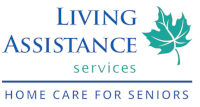With Canada’s aging population growing at record speed, it’s not surprising that we’re seeing a shortage of Personal Support Workers to keep up. Baby Boomers are aging and many had fewer or no children. This not only means more seniors in need of care without children to care for them, but also fewer people of caregiving age to provide professional elderly care services in hospitals, senior care facilities, and at home.
According to Stats Canada, approximately 6 million Canadians are over 65 and the number of Canadians receiving some type of home healthcare sits at around 8 percent of the country’s total population. The estimated number of seniors requiring health care services is expected to double over the next 20 years, according to the Canadian Institute for Health.
These numbers aren’t just affecting seniors looking for private home care, but also those utilizing home healthcare services through the Local Health Integration Network (LHIN). Created by the provincial government just two years ago, a client would receive their first home care visit within 10 days. That number jumped to a whopping 77 days in 2017. Though new funding from the government helped drop those wait times, they are rising steadily again with clients currently waiting an average of 28 days for service.
Making It Better
There will always be a need for caregivers and that need has already passed the breaking point.
The federal government recognizes this and has been making an effort to recruit more foreign caregivers through increased funding, incentives, and raising compensation rates. A 5-year pilot program made becoming a caregiver more appealing to those from outside of Canada by offering caregivers the opportunity to apply for permanent residency by securing and maintaining employment for two years.
Canada’s program appears to be the only one in the world that provides access to permanent residency to foreign caregivers. This incentive was put in place to make up for the less-than-desirable realities of the job, such as low pay and unpleasant, and sometimes even abusive or exploitative work conditions.
Unfortunately, many caregivers are finding out that they may not be eligible for permanent residency after being apart from their families and spending hundreds or even thousands of dollars on applications, language assessments, and other requirements. The program is set to expire in November 2019 and caregivers who have not completed two years of caregiving work by that date will no longer be eligible to apply. This includes caregivers who have been here for several years, but haven’t been able to accumulate two years’ worth of work experience for reasons beyond their control, such as being let go by employers who no longer need or want care, or having to leave a toxic work environment. If a caregiver is let go or chooses to switch employers, they need to apply for a new work permit—a process that can take close to a year to complete and puts them a step closer to missing the application cut-off.
While the government has introduced new pathways to permanent residency, the requirements for eligibility have created significant new obstacles for caregivers, further adding to the shortage we’re facing now. With a job that can be unpleasant at times, low-paying, and without the guarantee of permanent status, there is little incentive for foreign caregivers to leave their families behind to come work in Canada.
Living Assistance Services takes pride in our high standards when it comes to recruiting PSWs and we maintain this quality with regular performance monitoring and ongoing training from our Registered Nurse. We offer our caregivers compensation that is reflective of the important job they do. We recognize that it takes a special person to care for others and value their commitment to a job that can be quite challenging at times. We also demonstrate our appreciation with an annual luncheon to honor our five-star caregivers and we hold them in the highest regard.
While we wait for the government to (hopefully) implement a permanent solution to this ongoing and likely permanent need for caregivers, we will continue to do our part to make it better.
David Porter, CPCA
Director
Living Assistance Services – Senior Home Care
Article Resources
Seniors in Transition: Exploring Pathways Across the Care Continuum. https://www.cihi.ca/en/seniors-in-transition-exploring-pathways-across-the-care-continuum
Caregiver Program. https://www.canada.ca/en/immigration-refugees-citizenship/services/work-canada/permit/caregiver-program.html
Home and community care. https://www.ontario.ca/page/homecare-seniors
Caregiver Program. https://www.cic.gc.ca/english/helpcentre/results-by-topic.asp?top=28

